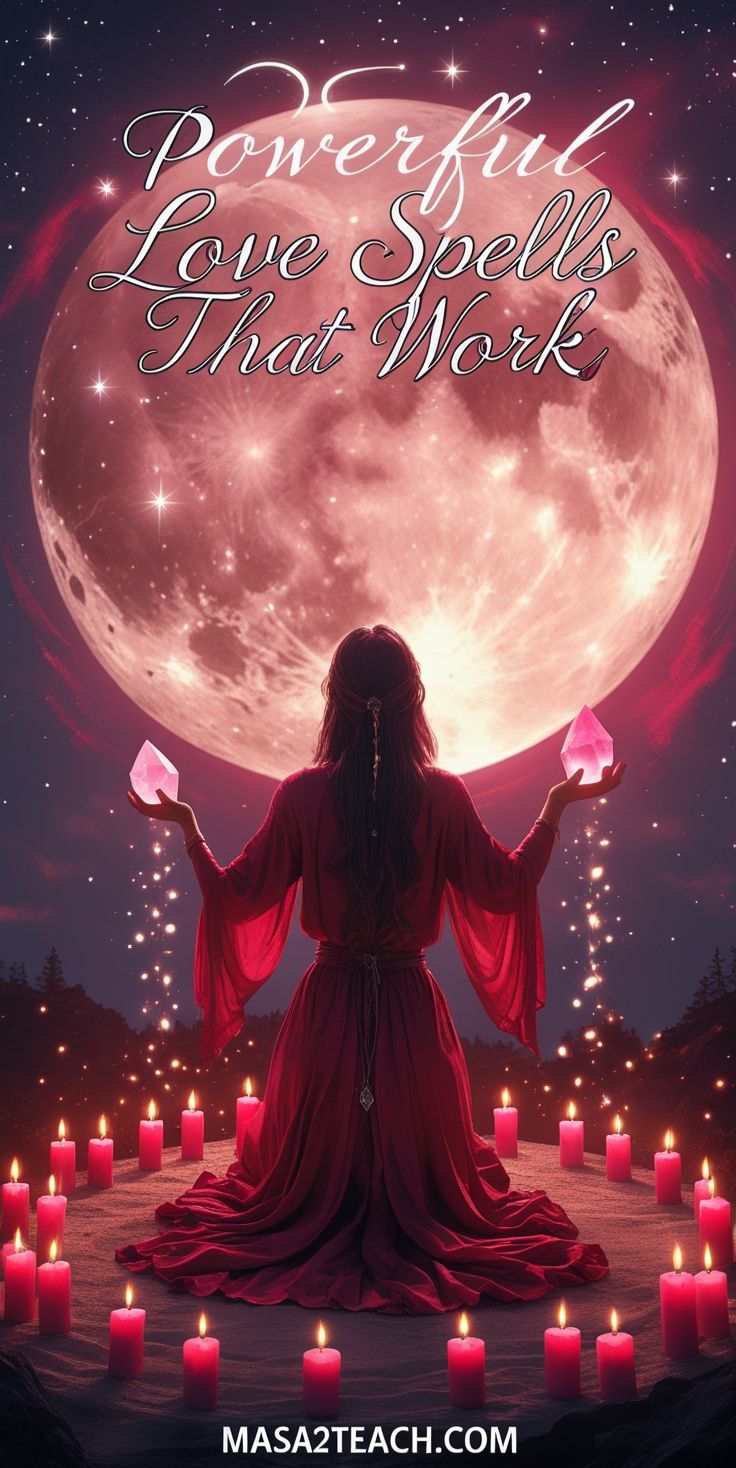How Do Ritual Spells Work?
You're probably curious about how ritual spells function within the domain of spellcasting. At first glance, they seem like a convenient tool for spellcasters, offering a way to conserve resources. But why do some classes have inherent access while others require special feats? The mechanics involve more than just extra time; preparation and concentration play key roles. And what about the strategic advantages that make rituals ideal for exploration? There's a deeper layer to these spells that might surprise you, influencing how you plan your magical undertakings. Let's explore the nuances and uncover the full potential of ritual spells.
Understanding Ritual Casting

When it comes to understanding ritual casting, at its core, it's about flexibility and resource management for spellcasters. Some professional spell casters, like Psychic Belinda, emphasize the importance of ethical practices in spell casting, which is a vital consideration for many.
You can cast ritual spells without using a spell slot, which means conserving your resources for more urgent needs. However, this comes at the cost of an extended casting time—an additional 10 minutes. This trade-off can be significant in situations where time isn't a pressing factor, allowing you to save your spell slots for when they're truly needed.
Ritual casting is available to certain classes like Clerics, Druids, Wizards, Artificers, and Bards, giving you the ability to perform specific ritual spells that you've prepared or know.
Wizards have the unique advantage of using any spell in their spellbook as a ritual. If you're not in one of these classes, the Ritual Caster feat opens up the possibility of ritual casting, assuming you meet the prerequisites.
Your spellcasting ability remains central to successfully performing rituals. Remember, ritual spells must be cast at their lowest level and any interruption requires a complete restart.
This method provides a strategic way to leverage your spellcasting abilities effectively, enhancing your versatility as a spellcaster.
Ritual Casting Mechanics
Ritual casting mechanics offer spellcasters a unique way to conserve resources while maintaining their magical capabilities. By using ritual casting, you can cast specific spells with the "ritual" tag without expending spell slots.
However, you'll need to add an extra 10 minutes to the normal casting time. Only spells that are prepared or known can be cast this way, with wizards having the advantage of using any spell in their spellbook. This method can be particularly beneficial for spells that promote improved communication and understanding, as it allows for a more deliberate approach.
Here's how ritual casting works:
- Spellcasting without Slots: You can cast a ritual spell without using a spell slot, but it must be a spell you have prepared or know. This is perfect for conserving spell slots for other situations.
- Casting Time Extension: The process requires an additional 10 minutes beyond the normal rules for spellcasting, so plan accordingly when you decide to use this method.
- Limitations and Interruptions: Ritual spells are always cast at their lowest level and can't be upcast. If your ritual is interrupted, you'll have to start over, but no spell slot is lost.
Classes like clerics and druids have access to these mechanics inherently, enhancing their versatility without depleting their resources.
Eligible Classes for Rituals

While many adventurers wield magic, not all can tap into the unique benefits of ritual casting. Among the eligible classes for rituals, the Artificer, Bard, Cleric, Druid, and Wizard stand out because they can cast ritual spells inherently. This means they can perform certain spells without using a spell slot, a valuable ability when conserving resources.
Wizards, for instance, can add ritual spells to their spellbooks and cast them when needed, offering flexibility in their spellcasting. Warlocks, though not typically among the primary ritual spellcasters, can also access rituals through the Pact of the Tome feature. By choosing the Book of Ancient Secrets invocation, they can learn first-level ritual spells from any class, broadening their magical repertoire. This flexibility is similar to how customizable spells can be tailored to fit individual needs, ensuring a thorough magical experience.
If you're not part of these spellcasting classes, don't worry. The Ritual Caster feat opens the door to ritual spells for those with an Intelligence or Wisdom score of 13 or higher. By selecting this feat, you gain a ritual book containing two 1st-level spells with the ritual tag.
Over time, you can expand your collection by adding more spells from written sources, enhancing your ability to cast spells creatively and efficiently.
Spell Preparation Requirements
When you're preparing ritual spells, make sure you have all necessary spell components ready, as they're essential for successful casting.
Depending on your class, you might need to have the spell prepared in advance, such as with clerics or druids, while wizards enjoy the flexibility of using their spellbook directly.
Don't forget that only spells marked with the "ritual" tag can be performed this way, and they'll always be cast at their base level.
Necessary Spell Components
Mastery of ritual spells hinges on understanding their essential components and preparation requirements. To successfully cast a spell as a ritual, you need to be aware of the spell components involved.
Ritual spells demand the same elements as normal casting, including verbal, somatic, and material components. These components are vital whether you're casting with a ritual feature or through normal means. For instance, some ritual spells, like Identify, necessitate specific material components—a reusable 100-gp pearl is one such example.
Here's a quick rundown of what you need to know:
- Verbal, Somatic, and Material Components: Just like normal casting, ritual spells require these three components. Don't overlook them, especially material components, as they can be essential for the spell's success.
- Spell Preparation: You must have the spell prepared or known, except if you're a wizard. Wizards have the advantage of casting any spell from their spellbook with the ritual feature.
- No Upcasting: Ritual spells are always cast at their lowest level. This means you can't use additional spell levels to enhance the spell's power.
Understanding these components guarantees your ritual spellcasting is seamless and effective.
Preparing Ritual Spells
Casting ritual spells requires careful preparation to guarantee their successful execution. First, verify the spell you wish to cast is marked with the ritual tag. Only spells with this tag can be cast as rituals, and they can't be upcast to higher levels.
As you prepare, remember that different classes offer unique approaches. For instance, clerics, druids, artificers, and bards naturally have access to these spells. If you're a wizard, you have the advantage of casting any ritual spell from your spellbook, which is a unique feature of your class.
If you're not a member of these spellcasting classes, the Ritual Caster feat provides an alternative. With this feature, you can select two first-level ritual spells, provided your Intelligence or Wisdom score is 13 or higher. This opens up the world of rituals to non-casters, allowing broader participation in spellcasting.
When preparing to cast a ritual spell, factor in the additional 10 minutes it requires beyond the standard casting time. This extra time is a trade-off, as casting rituals won't expend a spell slot. This makes them particularly useful for utility purposes during downtime.
Class-Specific Requirements
As you move from the preparation phase to understanding the class-specific requirements for casting ritual spells, remember that each class handles rituals uniquely.
Clerics and druids can cast ritual spells as long as they're prepared. This means you must utilize your spellcasting class feature without expending a spell slot. This requirement makes it essential to plan which spells you'll need to cast as a ritual in advance.
For wizards, the process is a bit different. You can cast ritual spells from your spellbook without having them prepared, as long as the spell has the ritual tag. This flexibility allows you to conserve your spell slots while still making full use of your arcane knowledge.
Bards, on the other hand, must have the ritual spells known in their spell list to cast them as rituals. This aligns with the cleric and druid method, focusing on what you've prepared.
Here's a quick summary of class-specific requirements:
- Clerics & Druids: Must have ritual spells prepared, using the spellcasting feature without a spell slot.
- Wizards: Can cast spells with the ritual tag directly from the spellbook.
- Bards: Need the spells known on their list to cast as rituals.
Benefits of Ritual Spells

When you use ritual spells, you can cast them without using up your precious spell slots, allowing for more flexibility in managing your magical resources.
The extended casting time of 10 additional minutes means they're best suited for situations where you're not pressed for time, like during exploration or planning sessions.
This balance of conserving spell slots and utilizing time efficiently makes ritual spells a strategic asset in your spellcasting toolkit.
Save Spell Slots
Why are ritual spells a game-changer for spellcasters? They allow you to save spell slots, which is essential during long adventures. By using ritual spells, you can cast certain utility spells without expending precious spell slots, giving you the flexibility to reserve those resources for combat or more significant situations.
Even though the casting time is longer—an additional 10 minutes—this feature shines when you're not racing the clock.
Here's why ritual spells are a must-have in your spellcasting repertoire:
- Resource Management: By casting utility spells as rituals, you conserve spell slots for more significant moments when immediate action is needed. This strategic management enhances your versatility.
- Repeat Use: As a spellcaster, you can cast these spells multiple times in a day without the limitation of spell slots. This means you're always ready for unexpected challenges.
- Low-Level Casting: Ritual spells are always cast at their lowest level, ensuring you save higher-level spell slots for impactful spells when necessary.
Mastering ritual spells can transform your approach to adventuring, making you an indispensable asset to your party through thoughtful resource management and enhanced versatility.
Extended Casting Time
Frequently, the extended casting time of ritual spells might seem like a drawback, but it actually offers several strategic advantages. Casting a ritual spell requires an additional 10 minutes compared to its normal casting time, making it unsuitable for combat. However, this extra time doesn't consume a spell slot, which is a significant benefit for spell management. By not using up valuable slots, you can conserve your resources for more critical encounters where immediate spellcasting is necessary.
Ritual spells also cast at their lowest level, meaning you can't enhance them with higher-level effects. Despite this limitation, the extended casting time allows for strategic planning. You can prepare and execute these spells in non-combat scenarios, providing utility and solutions to problems that arise outside of battle. This foresight can be invaluable, letting you address challenges without depleting your resources.
Moreover, because ritual spells don't consume a spell slot, you can perform them multiple times a day. This flexibility guarantees that you have powerful tools at your disposal, even when you're conserving your spell slots for when they're truly needed. Consequently, ritual spells enhance your overall spellcasting strategy.
Common Ritual Spells
Among a spellcaster's arsenal, common ritual spells hold a special place for their utility and versatility. Detect Magic is indispensable, revealing magical auras to identify enchanted items and areas around you.
These common ritual spells offer benefits without consuming valuable spell slots since the spell can be cast as a ritual. To cast a ritual, a spellcaster must have the spell in their spell lists and follow the normal casting requirements.
Here's a quick rundown of some popular ritual spells you might find useful:
- Identify: This spell provides detailed information about magical items. To cast it, you'll need a 100-gp pearl, but it's worth it to know the item's properties and effects.
- Alarm: By casting this spell as a ritual, you can secure an area effectively. It sets up an alert system, lasting up to 8 hours, ensuring you're not caught off guard by surprise attacks.
- Find Familiar: Summon a magical companion to assist you. This spell enhances party dynamics by providing additional support and versatility in various tasks.
These spells increase your strategic options, ensuring you're always prepared for whatever challenges you face.
Interruptions and Concentration

While common ritual spells offer great utility and flexibility, their successful casting hinges on uninterrupted concentration. Maintaining focus is vital, as any interruptions can derail the entire process. If your concentration breaks during the casting, the ritual fails and you'll have to restart from the beginning. Fortunately, this mishap doesn't consume a spell slot, providing a safety net for future attempts.
Interruptions can come from various sources, both external and internal. You might voluntarily choose to end the casting if the situation demands it, or unforeseen distractions could occur. Either way, the spell fails without using up a spell slot, allowing you to attempt it again later.
Long casting times required for many rituals make it important to select a safe environment to minimize the risk of disruptions. Choosing the right setting without time constraints is essential. This guarantees you can maintain the concentration needed throughout the ritual.
Being aware of potential interruptions will help you plan accordingly, enhancing the likelihood of a successful casting. If an interruption does occur, remember that restarting is always an option, and no resources are lost in the process.
Homebrew Rules for Rituals
In the domain of tabletop gaming, homebrew rules for rituals can transform your gameplay experience by tweaking standard mechanics to better fit your campaign's unique flavor.
By modifying casting time, such as increasing it by 10 minutes per spell level, you can achieve more powerful effects. This approach allows for flexibility in ritual casting, encouraging you to explore creative strategies for your characters' abilities.
Upcasting is another exciting option, where you might cast ritual spells at higher spell levels, maintaining the ritual casting mechanics while revealing new potentials.
When considering these adjustments, it's essential to discuss them with your DM. This guarantees that any homebrew changes align with your campaign's overall balance and narrative. A collaborative approach helps maintain fairness and enriches the storytelling aspect of your game.
To make the most out of homebrew rules for rituals, consider these ideas:
- Modify Casting Time: Increase the time based on spell level for more potent effects.
- Upcasting Options: Cast rituals at higher levels for expanded capabilities.
- Thematic Elements: Introduce specific components or rituals for a richer magical experience.
Strategic Use of Rituals

Ritual spells open up a world of strategic possibilities for savvy players. By casting spells like *Detect Magic* or *Identify* as a ritual, you can conserve precious spell slots for critical moments.
Sure, they take 10 minutes longer to cast, but with strategic planning, you can prepare these utility spells well before you face any encounters. This allows you to focus on immediate combat spells when the situation demands it, without worrying about running out of resources.
Using rituals wisely can enhance your party's dynamics. For example, casting *Find Familiar* provides valuable support with scouting or delivering spells, while *Alarm* guarantees your group stays safe during rests.
These utility spells, when used thoughtfully, offer diverse solutions to challenges your party might face. In safe environments, where time isn't a constraint, you maximize the utility of your spells without the stress of combat.
Frequently Asked Questions
How Do You Use Ritual Spells?
You start by ensuring the spell has the ritual tag and is either prepared or known. Extend casting time by 10 minutes, and don't worry about using a spell slot. Remember, interruptions require starting over completely.
How to Know if a Spell Is a Ritual Spell?
You'll find ritual spells by spotting specific tags. Check printed materials for "ritual" next to the spell's school and level. On digital platforms, look for an "R" symbol. It's a coincidence that both methods are straightforward.
What Is the Ritual Casting Rule?
You must have the spell prepared or known, and it needs the "ritual" tag. Add 10 minutes to the casting time. You won't use a spell slot, but interruptions mean restarting the entire process.
Are Ritual Spells Always Prepared?
Think of ritual spells like arrows in a quiver; they're not always prepared. For wizards, they're ready if in your spellbook. For clerics and druids, they need to be part of your prepared spells.
Conclusion
So, you've mastered the art of ritual spells, casting them with the grace of a seasoned spellcaster. Ironically, while you meticulously prepare every component and timing, the universe chuckles, knowing that these spells, designed for careful planning, often get interrupted by life's chaotic twists. Yet, there's beauty in the chaos—rituals teach patience and foresight in a world that rarely offers either. Embrace the irony, and let the spells weave their subtle magic amidst the unpredictability.
🔴 Need Clarity on your Situation?



